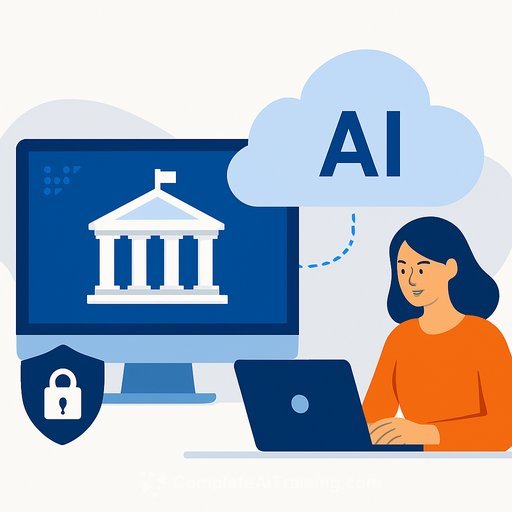LexLab Hosts International Discussion on Open AI and Policy: What Government Leaders Can Use Now
On October 24, UC Law San Francisco hosted An Evening of Open: Science, Software, & AI - a working session for people who build, fund, and govern technology. The focus was simple: make research and tools accessible, and you speed up discovery while protecting the public interest. The crowd included researchers, technologists, and policymakers from both sides of the Atlantic.
Co-hosts included LexLab, GitHub, the Open Forum for AI, and the San Francisco French Consulate Office of Science and Technology. The program highlighted how open science, open-source software, and open-source AI fit together - and why consistent policy and governance are the bottleneck.
Why this matters for government
Public agencies face pressure to deliver better services with fewer resources. Open approaches reduce duplication, improve auditability, and invite community review. That means safer software, faster research translation, and budgets that go further.
Open science also builds trust. When data, models, and methods are accessible, oversight improves and policy choices are easier to explain to constituents.
Key voices and themes
Florian Cardinaux, consul general of France in San Francisco, underscored a policy-level commitment: "France's strong commitment to openness in research and innovation - a core principle of our National Strategy for Open Science. Through initiatives such as Choose France for Science, France aims to make scientific knowledge accessible to all and to foster international collaboration."
Tal Niv, professor and director of applied innovation at UC Law SF, tied it to legal education and governance: "For us as a law school, this work is core to training lawyers who understand technology, governance, and accountability so they can help build an open future instead of just reacting to it."
Who was in the room
- Co-hosts: LexLab, GitHub, the Open Forum for AI, and the San Francisco French Consulate Office of Science and Technology
- Speakers: Florian Cardinaux (Consul General of France in San Francisco) and Tal Niv (UC Law SF)
- Attendees: Researchers, technologists, policymakers, and public-interest advocates
Panel: Powering the Future of Research
Moderated by Emmanuelle Pauliac-Vaujour, attachée for the consulate's Science & Technology Office.
- Eva Maxfield Brown - Ph.D. candidate, University of Washington
- Adam Hyde - CEO, Kotahi Foundation; founder, Coko Foundation
- Quentin Gallouédec - Research engineer, Hugging Face
- Sewon Min - Assistant professor, UC Berkeley; research scientist, Ai2
Discussion centered on speeding up research cycles with shared infrastructure, open datasets, and model transparency. The takeaway for agencies: fund commons that multiple institutions can reuse, and you get more output per dollar.
Panel: Law and Policy for an Open Future
Moderated by Margaret Tucker, GitHub public policy manager.
- Pamela Chestek - Principal, Chestek Legal
- Joshua Levine - Research fellow, Foundation for American Innovation
- Timothy Vollmer - Scholarly communication and copyright librarian, UC Berkeley Library
- Peter Routhier - General Counsel, Internet Archive
This panel focused on licensing clarity, procurement rules that support open-source, and preservation. For public institutions, the message was clear: legal frameworks should make participation safe and simple - for contributors and adopters.
What government can do next
- Adopt open-by-default policies for publications, data, and code with clear, permissive licenses.
- Fund maintenance, not just pilots: support security reviews, documentation, and community governance.
- Require reproducibility and model cards for AI systems used in public services.
- Prioritize procurement pathways that allow use and contribution to open-source software.
- Set up cross-border MoUs to share datasets, benchmarks, and evaluation methods.
- Invest in workforce training on open licenses, data stewardship, and AI risk management.
- Back institutional repositories and archiving partners to keep knowledge accessible over time.
Partners driving the conversation
Niv credited partners for keeping the discussion grounded and actionable: "The French Consulate's science and technology office is a bridge that moves knowledge across borders and into labs, startups, and public institutions and agencies, a visible champion of open science. GitHub Policy is the policy voice of open source and software development, helping developers and institutions translate open practice into durable norms, good stewardship, and workable rules."
Further reading
Upskilling your team
If your agency is building AI literacy and needs practical training paths, explore role-based options here: Complete AI Training - Courses by Job. Clear curricula help teams apply open, responsible AI practices in daily work.
Your membership also unlocks:






